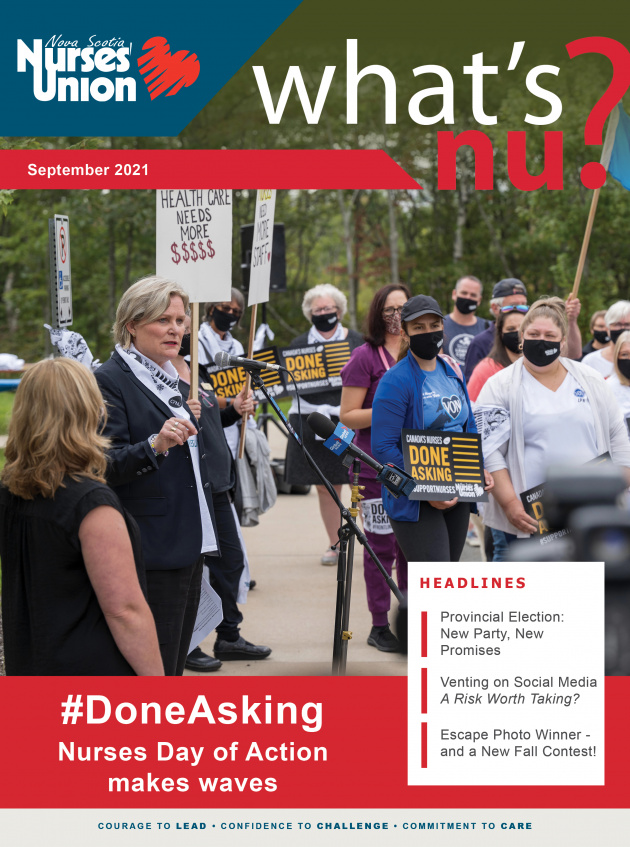Over the past several years there have been cases across the country in which nurses and other healthcare workers were disciplined and sometimes fired for content they shared on social media. These incidents range from breaking confidentiality, to venting about an employer, to criticizing aspects of the healthcare system and others working within it.
Nursing was a stressful profession prior to COVID-19. The pandemic has put strain on nurses that compounds the many other challenges already faced in the workplace – understaffing, excessive overtime, workplace safety issues, violence, and so much more.
With these challenges, it’s understandable that some nurses may, at the end of a particularly difficult day, feel compelled to take to social media. Friends on Facebook are in our corner, after all. These are the people we should be able to vent to in a moment of need – right?
The answer is complicated.
Nurses are expected to present a professional image both in and outside of the workplace. That means that we’re expected to bite our tongues, even when something is bothering us, even when we think it’s information others deserve to know.
The challenge of posting to social media while upset is that we’re at higher risk of breaching legitimate boundaries. If an employee at Walmart tweets content critical of their employer, there’s a good chance they will not have a job the next day. The same goes for those who work in health care. When a major public system is also your employer, there’s a very fine line to walk when offering critique.
There are reasonable concerns around what nurses should or should not discuss in any public forum. Upholding confidentiality is paramount to your professional practice and could lead to dismissal if breached. Disparaging other healthcare workers and the care they provide could also lead to action from your regulator and your employer. This was the case for a Saskatchewan nurse who was fined $26,000 for writing a Facebook post criticizing the care provided to her grandfather. She eventually won her appeal, but the process took years, and was incredibly stressful for the nurse and her family.
Understanding that nurses have a stressful job and occasionally need to vent, please consider options other than social media for doing so. Talk directly to your family, friends and support system offline. Speak directly to your employer about concerns or contact the Union if there is an issue you need assistance with. If you still need to get it off your chest, write it down and set it aside for a few days, then return to it with greater perspective or resolve. Perhaps, you will choose to share the content with a broader audience. However, you may realize that it is not appropriate for social media.
To ensure you are using social media responsibly, remember these 6 “P’s” of Social Media Use:
- Professional – Act professionally at all times
- Positive – Keep posts positive
- Patient/person free – Keep posts patient and person free
- Protect yourself – Protect your professionalism, your reputation and yourself
- Privacy – Keep your personal and professional life separate; respect the privacy of others
- Pause before you post – Consider implications; avoid posting in haste or anger
The NSNU supports the rights of our members to advocate for patients, nurses and other healthcare workers. We ask that you take caution so as not to put your job, license or confidentiality at risk.
When in doubt, check out nsnu.ca/SocialMediaNursingPractice, and remember that the NSNU is here to help you through workplace issues. Contact nsnu.office [at] nsnu.ca or call your Labour Relations Representative directly. Contact information for all NSNU staff is available at nsnu.ca/staff, and you can find your rep at nsnu.ca/WhoIsMyLRR.

 Login Members Only
Login Members Only


